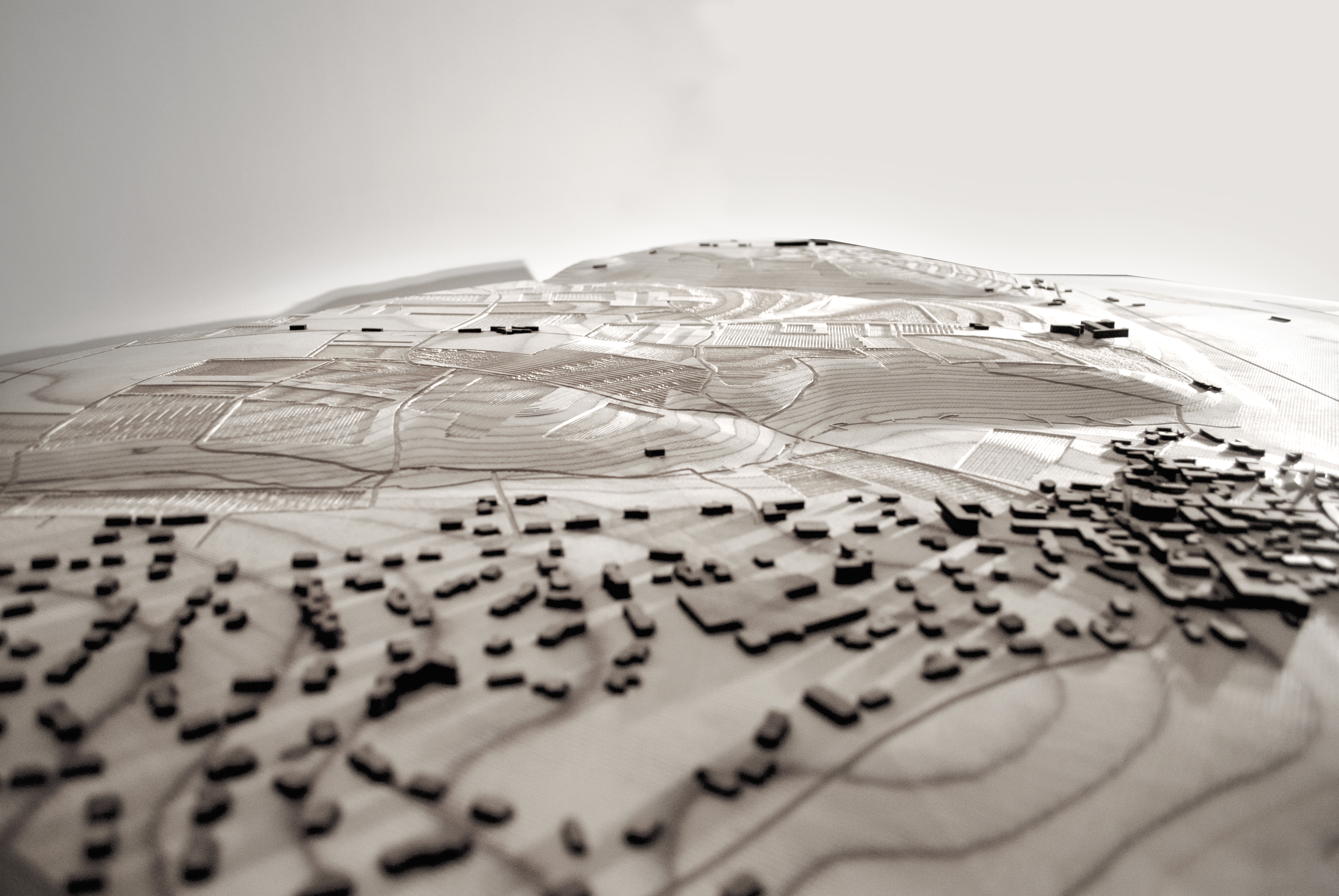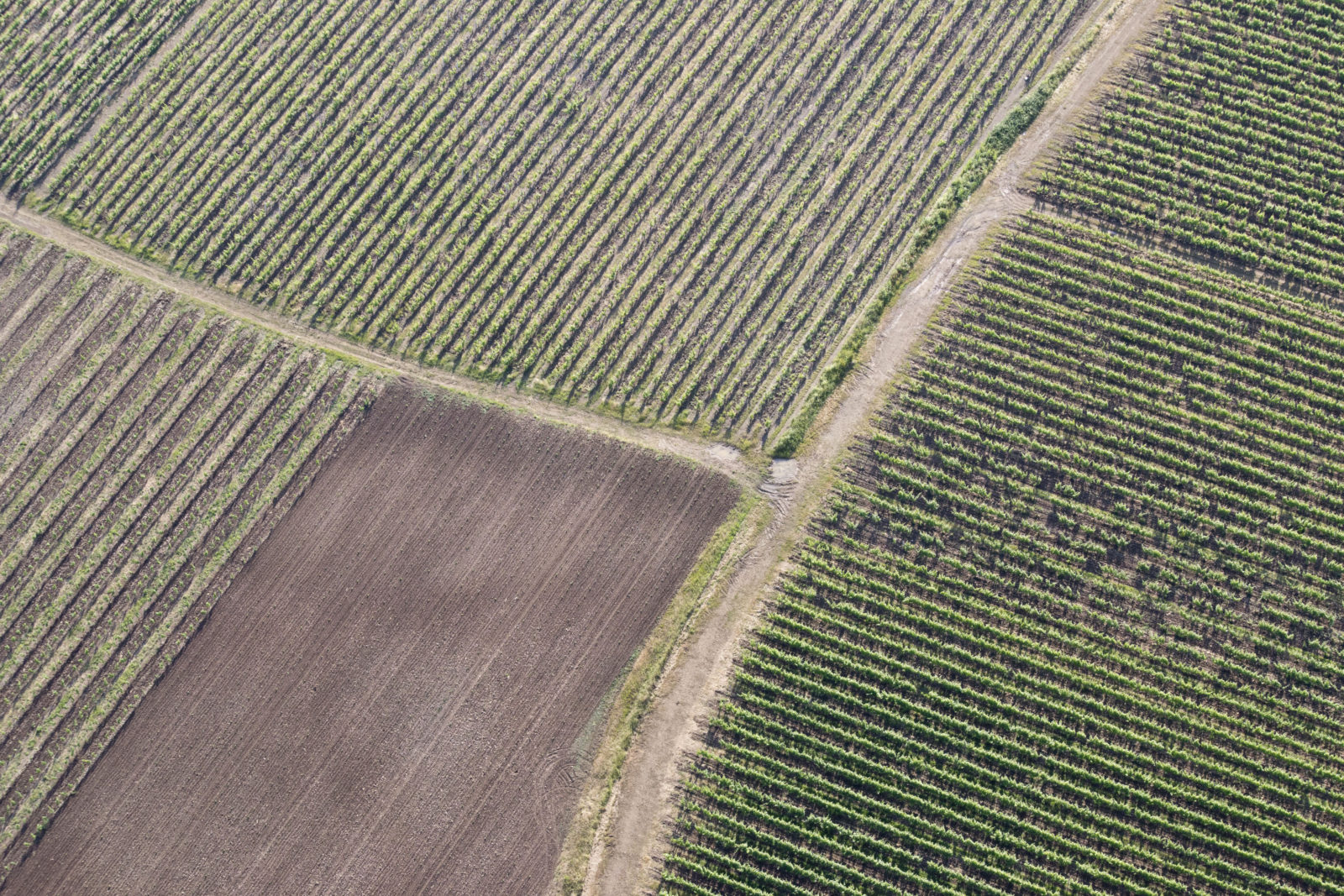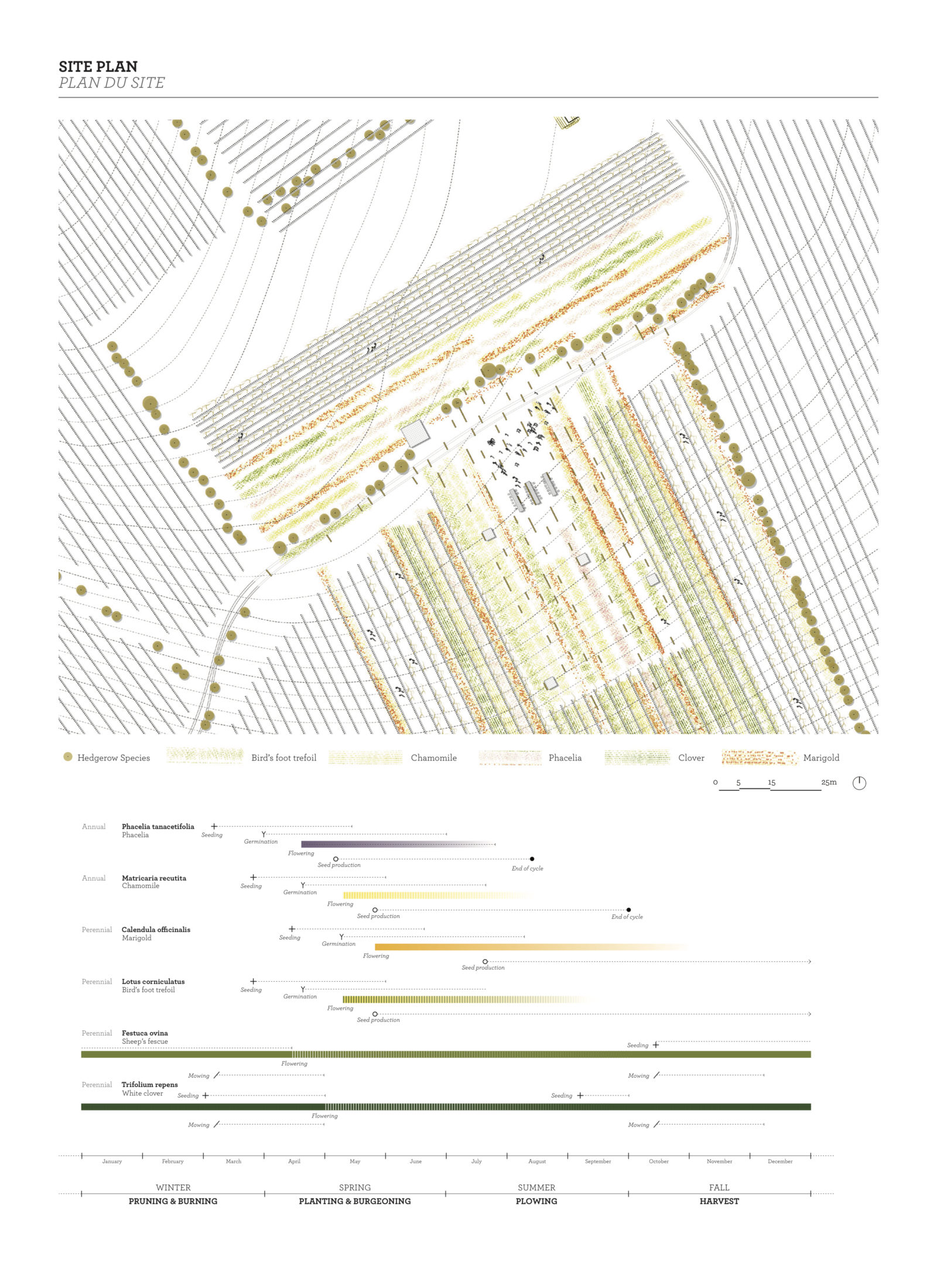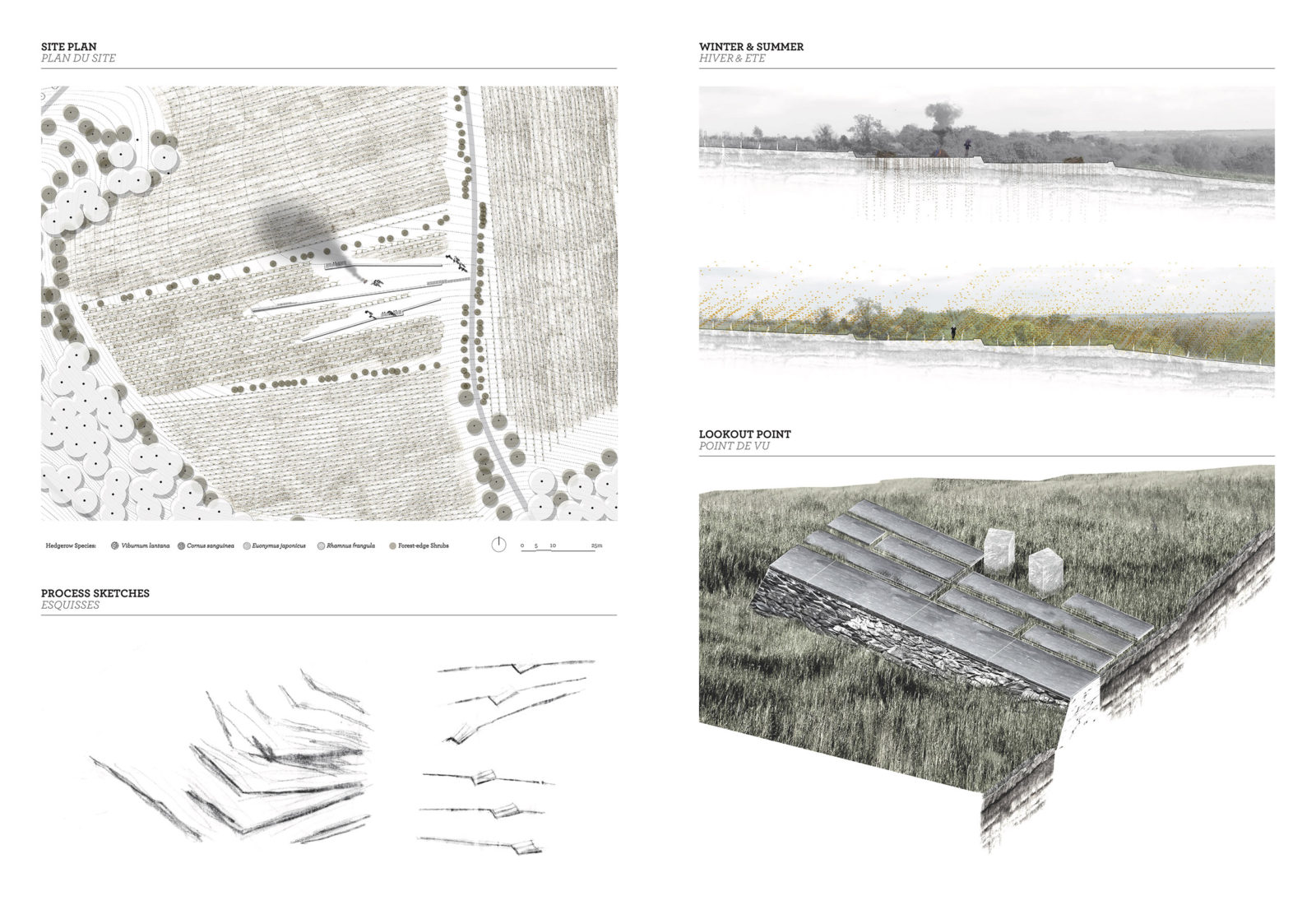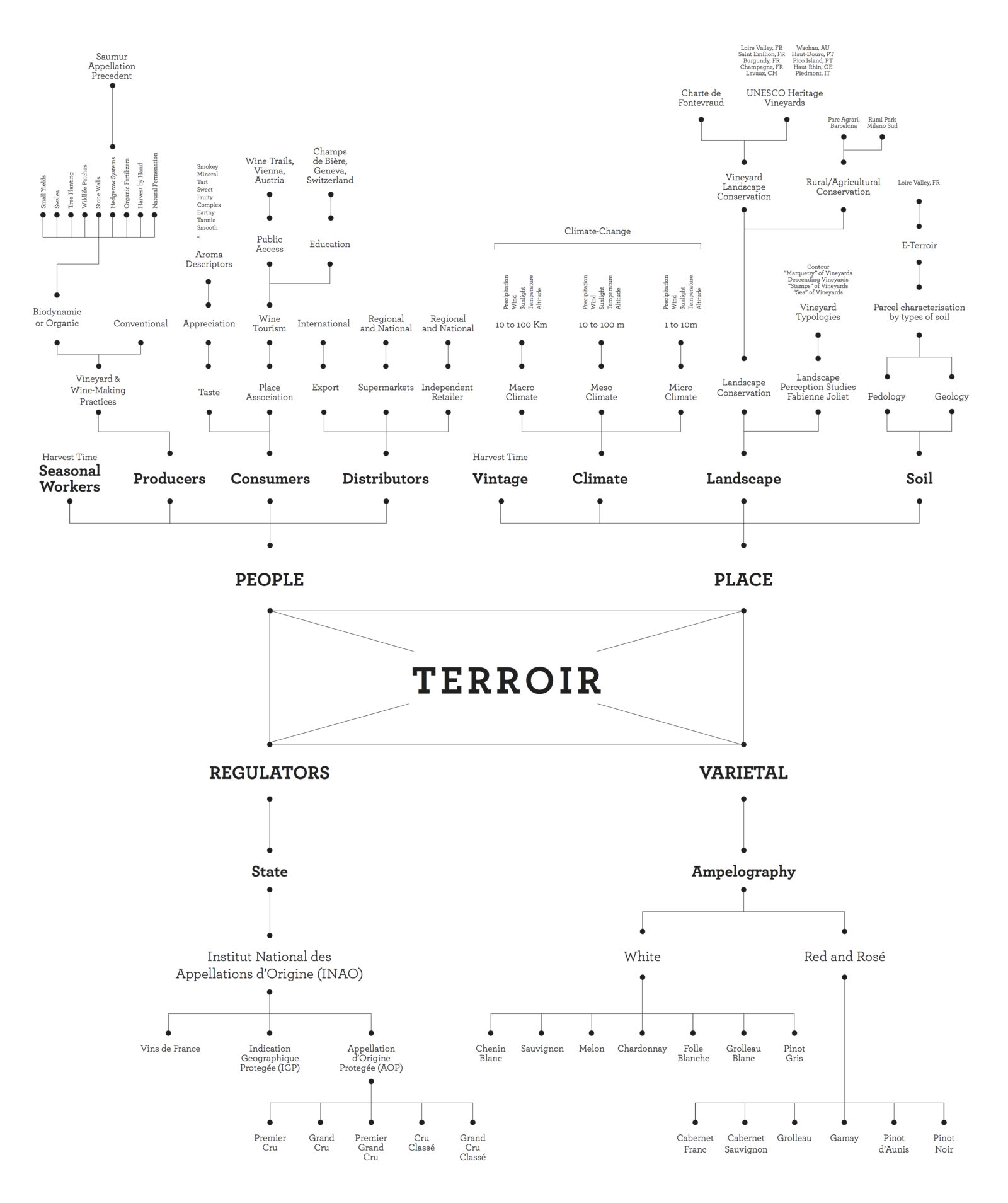From Terroir to Territory: Vineyard Public Space
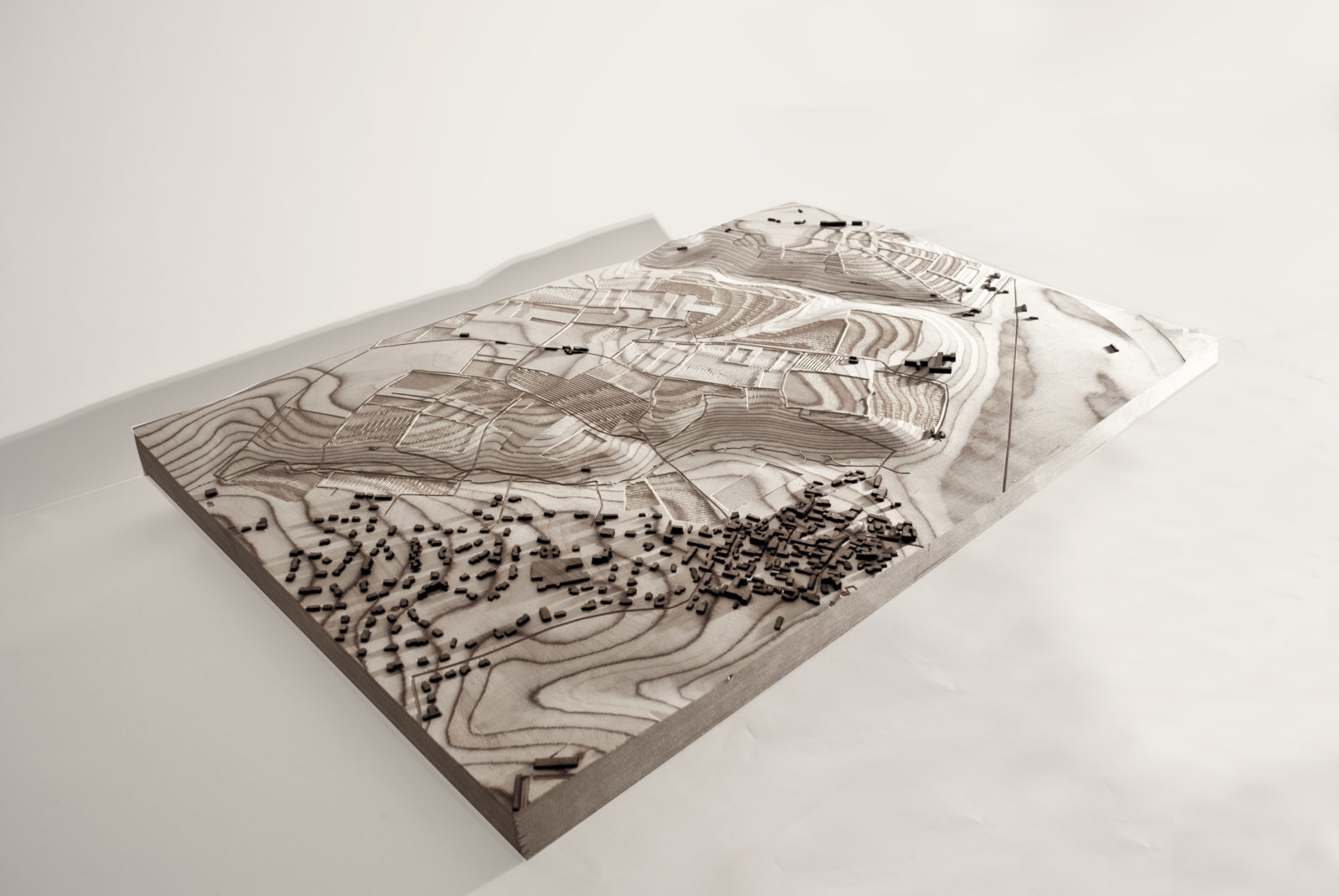
Public network model for the town of Savennières, France
by Alexander Cassini (MLA I ’16)
The French concept of terroir claims that characteristics of place can be traced through a wine’s taste. Yet, today local characteristics tend to be overshadowed by the globalized wine-market where large corporations shape the production, distribution, and consumption of wine worldwide, creating wines with a uniform taste. In the Loire Valley, there is a counter current whereby a growing number of its vintners have reintroduced traditional and ecological growing techniques to bring out the true taste of the terroir in the wine.
Using site-specific and economical means, the thesis provides the rudiments for a shared public space. A seasonally-revolving public vineyard space expresses local rituals, site and soil particularities, and unique micro-climates. This public space fosters people’s understanding of the necessity for the particular in vineyard landscapes thus demonstrating how public vineyard space can express terroir.
Over 100 000 people per year migrate from urban to rural areas in France seeing the countryside as an attractive destination. Yet, this “neo-rural” lifestyle is disconnected from the surroundings and opportunities for exchange and understanding of viticulture are limited. This thesis vouches for developing vineyard public space through a deeper manifestation of terroir thus reconnecting locals with their surroundings. The vast territory of vineyard tracts in the Loire Valley is the ideal locus for a unique and temporal public space blending productive, ecological, didactic, and contemplative purposes. The vineyard becomes a complex public space—a space of exchange and strengthened social ties among producers, locals, consumers, and tourists—that offers a model for reordering the experience of the territory.
Faculty Advisor: Gary Hilderbrand
